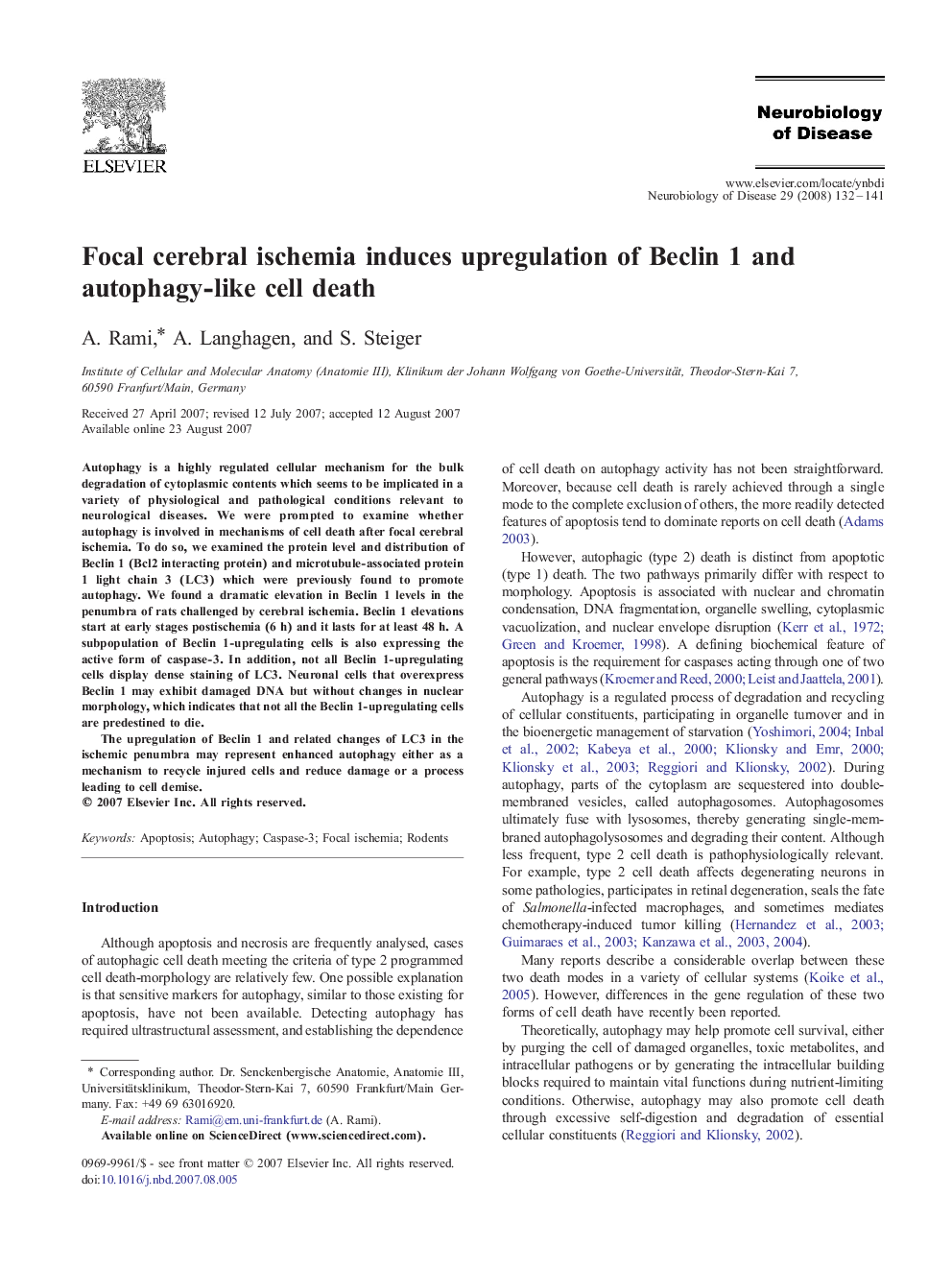| Article ID | Journal | Published Year | Pages | File Type |
|---|---|---|---|---|
| 3070699 | Neurobiology of Disease | 2008 | 10 Pages |
Autophagy is a highly regulated cellular mechanism for the bulk degradation of cytoplasmic contents which seems to be implicated in a variety of physiological and pathological conditions relevant to neurological diseases. We were prompted to examine whether autophagy is involved in mechanisms of cell death after focal cerebral ischemia. To do so, we examined the protein level and distribution of Beclin 1 (Bcl2 interacting protein) and microtubule-associated protein 1 light chain 3 (LC3) which were previously found to promote autophagy. We found a dramatic elevation in Beclin 1 levels in the penumbra of rats challenged by cerebral ischemia. Beclin 1 elevations start at early stages postischemia (6 h) and it lasts for at least 48 h. A subpopulation of Beclin 1-upregulating cells is also expressing the active form of caspase-3. In addition, not all Beclin 1-upregulating cells display dense staining of LC3. Neuronal cells that overexpress Beclin 1 may exhibit damaged DNA but without changes in nuclear morphology, which indicates that not all the Beclin 1-upregulating cells are predestined to die.The upregulation of Beclin 1 and related changes of LC3 in the ischemic penumbra may represent enhanced autophagy either as a mechanism to recycle injured cells and reduce damage or a process leading to cell demise.
